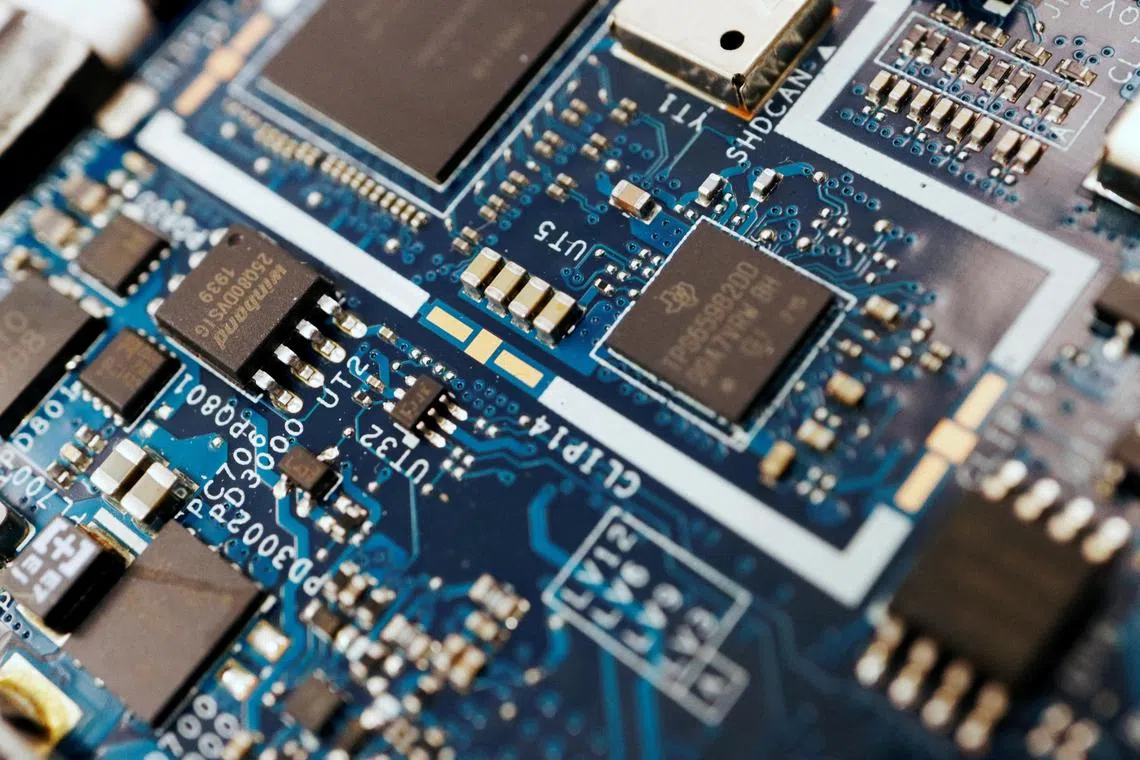China receives US equipment to make advanced chips despite new rules: Report
Sign up now: Get ST's newsletters delivered to your inbox

The findings come as the US scrambles to figure out how Huawei was able to produce an advanced 7-nanometer chip at SMIC.
PHOTO: REUTERS
WASHINGTON - Chinese companies are buying up United States chipmaking equipment to make advanced semiconductors, despite a raft of new export curbs aimed at thwarting advances in the country’s semiconductor industry, a report said on Tuesday.
The 741-page annual report, released by the US-China Economic and Security Review Commission, takes aim at the Biden administration’s October 2022 export curbs,
With the Commerce Department using the 14-nanometre restriction limit, “importers are often able to purchase the equipment if they claim it is being used on an older production line, and with limited capacity for end-use inspections, it is difficult to verify the equipment is not being used to produce more advanced chips”, the report stated.
The finding comes as the US scrambles to figure out how Chinese telecoms giant Huawei was able to produce an advanced 7-nanometre chip to power its Mate 60 Pro smartphone at China’s top chipmaker SMIC, despite the export curbs announced in 2022.
Huawei and SMIC were also added to a trade restriction list in 2019 and 2020, which in theory bars US suppliers from shipping certain technology to the companies.
China watchers had theorised that SMIC could have made the chip with equipment obtained prior to the October 2022 rules, but it had other options for obtaining the equipment from overseas, the report shows.
The US managed to plug a key loophole in its efforts
But China stockpiled equipment by taking advantage of the lag time between the US October 2022 rules, and Japan and the Netherlands’ similar moves in July and September respectively, the report details.
According to the document, between January and August, China imported US$3.2 billion (S$4.3 billion) worth of semiconductor manufacturing machines from the Netherlands, a 96.1 per cent increase over the US$1.7 billion recorded over the same period in 2022.
China’s imports of semiconductor equipment from all countries totalled US$13.8 billion over the first eight months of 2023, it added.
The report does not outline a specific recommendation to address the gaps in the US rules, but urges Congress to request an annual evaluation, to be completed within six months by the General Accountability Office and later made public, of the effectiveness of export controls on chipmaking equipment to China.
The US-China Economic and Security Review Commission was created in 2000 to submit an annual report to Congress on the national security implications of economic ties between the US and China, and to provide recommendations for government action. REUTERS


